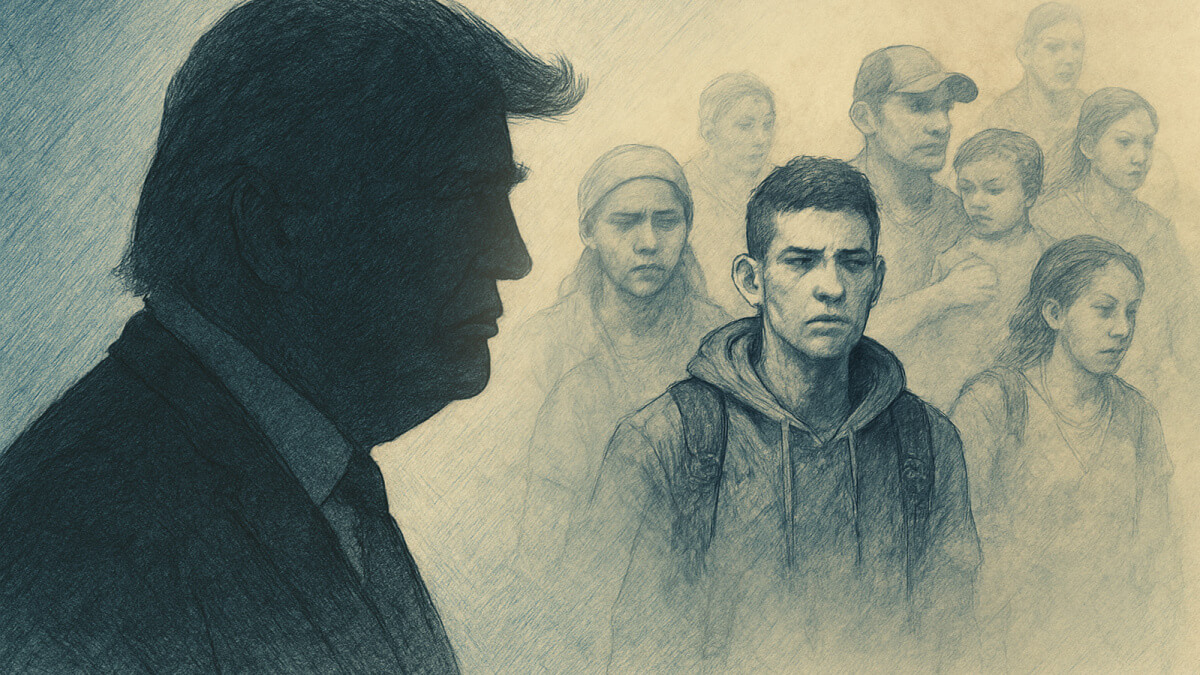The Supreme Court, in a landmark 8-1 decision on Monday, backed the Trump administration's move to revoke Temporary Protected Status (TPS) for around 350,000 Venezuelan migrants in the United States. This ruling paves the way for Homeland Security Secretary Kristi Noem to carry through with the administration's controversial policy change. The dissenting voice in the court came from Biden-appointed Justice Ketanji Brown Jackson.
TPS is designed as a humanitarian measure to provide relief to individuals from countries afflicted by war, natural disasters, or other emergencies, allowing them to live and work in the U.S. temporarily. However, it does not offer a path to permanent residency. The Biden administration had previously extended TPS for Venezuelans twice, recognizing the dire political and economic conditions in Venezuela under Nicolás Maduro's regime.
Secretary Noem terminated the program extension in February, citing that the continued presence of these migrants is "contrary to the national interest," with national security and public safety concerns at the forefront. The revocation comes despite the U.S. State Department's current travel advisory against Venezuela, highlighting the severe risks of wrongful detentions, terrorism, kidnapping, and civil unrest.
The debate over the status of Venezuelan migrants has been intense, with safety concerns in their home country being weighed against national security considerations in the U.S. The Trump administration has similarly ended TPS for migrants from Afghanistan and Cameroon, although these cases are not directly connected to the present legal dispute.
When Noem ended the TPS extension, a federal judge in California issued a block on the revocation, labeling it unconstitutional and based on "negative stereotypes." Judge Chen emphasized that the characterization of Venezuelan TPS recipients as criminals was unfounded and racist, noting that they are statistically more likely to possess bachelor's degrees and less likely to commit crimes than the average U.S. resident.
The Trump administration's immigration policies have seen mixed results in the judiciary. While the Supreme Court supported Noem's decision regarding TPS revocation, it obstructed Trump's attempt to employ the 18th Century Alien Enemies Act to deport migrants detained in Texas. Trump, voicing his displeasure on his social media platform, decried the latter decision as a "bad and dangerous day for America," fearing it would lead to more criminals entering the country. He commended conservative Justices Samuel Alito and Clarence Thomas for their effort to "protect our Country."
The Department of Homeland Security has recorded roughly 348,202 Venezuelans under TPS as of 2023, which Noem is seeking to terminate. The administration contends that the courts are overreaching and affecting the executive branch's discretion over immigration matters. Justice Department lawyers have argued that the judge's injunction improperly usurps immigration enforcement control and indefinitely impedes critical policy decisions that necessitate prompt and adaptable action.
Opponents of the TPS revocation argue that its elimination will strip work authorization from nearly 350,000 individuals residing in the U.S., subject them to deportation to an unsafe country, and result in significant economic losses nationally. The ongoing legal battle over TPS status for Venezuelan migrants remains unresolved, with its full political and humanitarian ramifications still uncertain.





